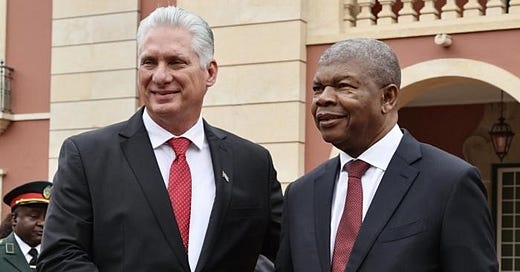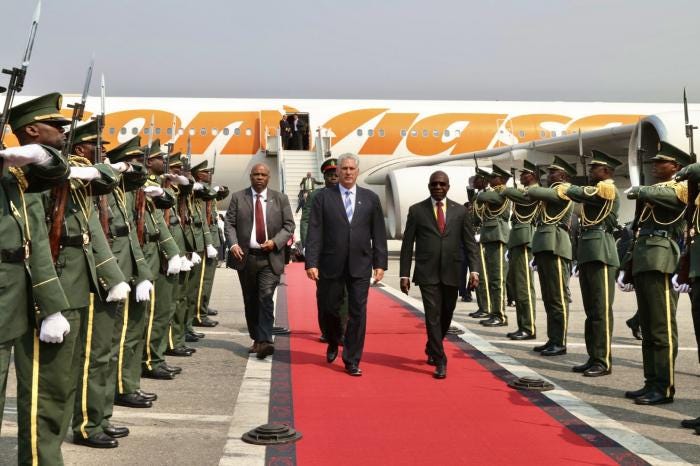Cuban president visits Angola
Allies in the struggle against colonialism and for a pluripolar world
Cuban President Miguel Díaz-Canel arrived in Luanda, the capital of Angola, on Sunday, August 20, 2023. It is the first stop in an African tour that includes Angola, Mozambique, and Namibia as well as South Africa, where the Cuban President will be attending the Summit of BRICS in his capacity as President of G77 plus China.
Cuba and Angola: Allies in the struggle against colonialism
Cuban journalists Yaima Puig Meneses and René Tamayo León write that “no country in the world has fulfilled its debt with its African roots as had Cuba.” Since the triumph of the Cuban Revolution, hundreds of thousands of Cubans have lent collaboration to all corners of the African continent, supporting their struggles for independence and contributing to the long road of overcoming the underdevelopment that is a legacy of colonialism in the region that is the cradle of civilizations. Rooted in the strong ties of friend…



